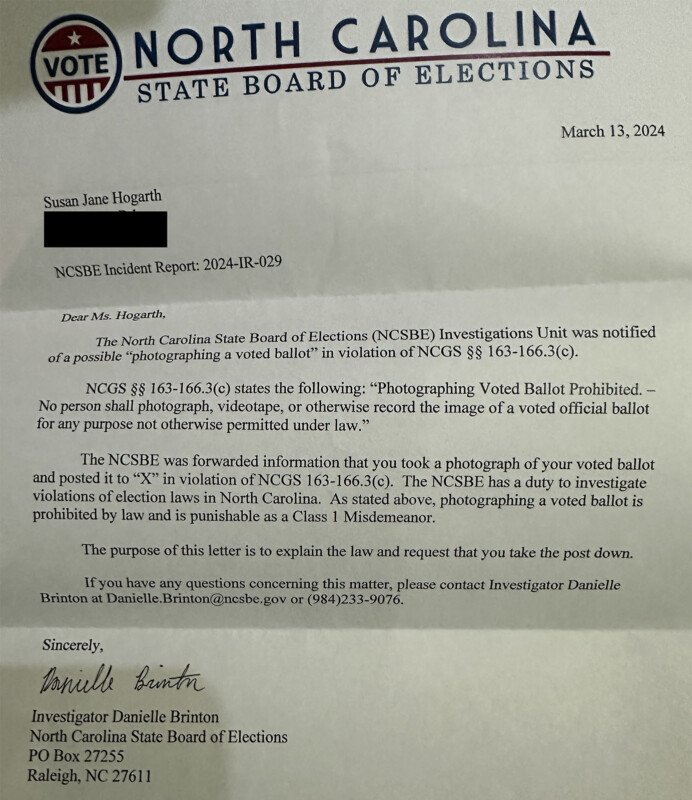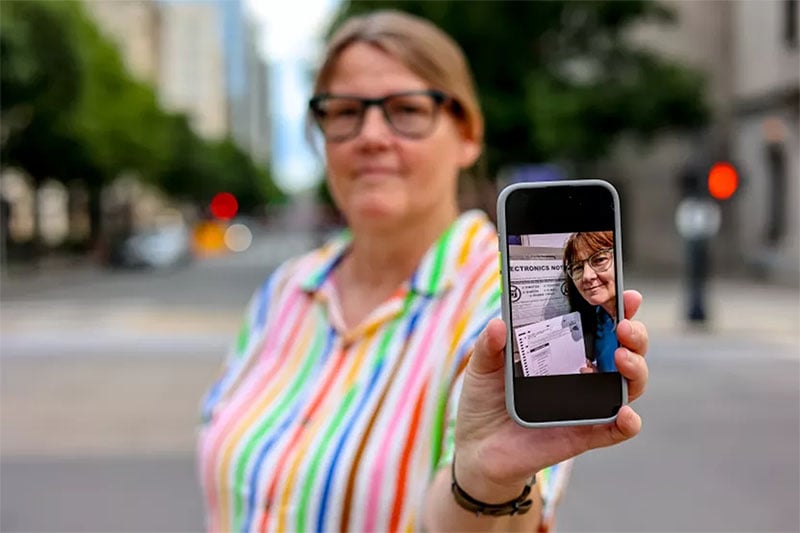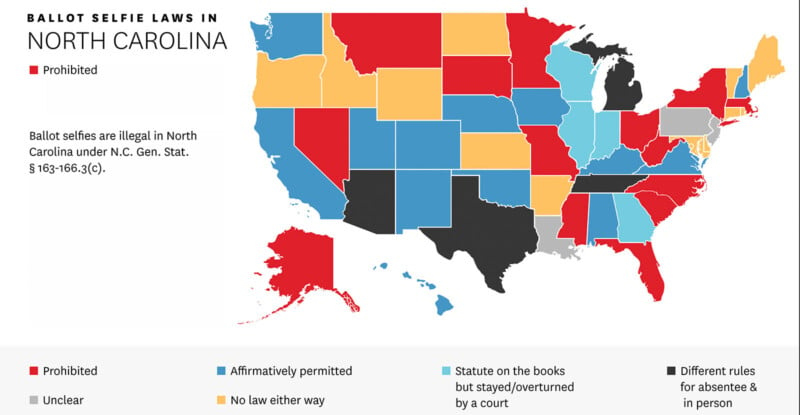North Carolina Woman Sues State for ‘Unconstitutional’ Ballot Selfie Law

A North Carolina woman is suing members of the North Carolina State Board of Elections concerning the state’s laws banning photos of official ballots, including “ballot selfies.”
Susan Hogarth voted in the North Carolina Libertarian Primary on March 5, 2024, and at the time, took a selfie with her completed ballot and posted it on social media. As it turns out, the selfie ran afoul of North Carolina state laws, as Hogarth was informed by a letter from the North Carolina State Board of Elections (NCSBE) less than two weeks later.
The letter, presented in photographic form below, references a North Carolina law, NCGS §§ 163-166.3 (c), which states: ‘Photographing Voted Ballot Prohibited. — No person shall photograph, videotape, or otherwise record the image of a voted official ballot for any purpose not otherwise permitted under law.”

The NCSBE’s letter told Hogarth that her offense is punishable as a Class 1 misdemeanor and that she should take the post down.
The maximum penalty for a Class 1 misdemeanor in North Carolina is 120 days in jail and a court-determined fine. There is no specific limit on the fine for a Class 1 misdemeanor in the state.
Hogarth refused to comply with the request and, with the aid of the Foundation for Individual Rights and Expressions (FIRE), she is suing members of the NCBSE and the Wake County Board of Elections with the goal of striking down what Hogarth and FIRE consider to be “unconstitutional statutes” concerning ballot selfies.
“It would have been easier to just take the post down,” Hogarth says in a statement. “But in a free society, you should be able to show the world how you voted without fear of punishment. Privacy is good for those who want it, openness should be available to those who prefer it.”

According to research conducted by FIRE as part of a July 2024 survey, roughly one in 10 Americans have, at some point, taken a ballot selfie.
“Ballot selfie bans turn innocent Americans into criminals for nothing more than showing their excitement about how they voted, or even just showing that they voted,” says FIRE attorney Jeff Zeman. “That’s core political speech protected by the First Amendment.”
According to FIRE, 14 states, including North Carolina, ban ballot selfies, while 13 have laws affirming residents’ rights to take them. The rest of the states either have no law relating to ballot selfies, don’t have clear rules, have a statute that has been stayed or overturned by a court, or have different rules depending on whether someone votes in person or by absentee ballot.

As for North Carolina, it has said the ban is in place because it believes ballot selfies “could be used as proof of a vote for a candidate in a vote-buying scheme.” FIRE says this justification “runs headlong into the First Amendment,” arguing further that the ban is a “clear example of what the Supreme Court calls a ‘content-based’ restriction on speech.”
For what it’s worth, North Carolina has had two of the most significant cases of voter fraud in the United States this century, including a dozen people voting illegally in 2016 and absentee ballot tampering in 2018, which ultimately resulted in a new election being held the following year.
“The burden is on North Carolina to prove it has a good reason to ban ballot selfies and that this is the only way to do it,” FIRE attorney Daniel Ortner explains. “The First Amendment protects the millions of voters who are proud to show the world that they actually voted for the people and policies they care about.”
“I won’t be bullied over such an innocent and wholesome impulse as sharing enthusiasm for my candidates,” Hogarth says. “These ballot selfie bans may seem harmless, but they’re just one more way the state attempts to control and muzzle true self-expression while pretending to protect it.”
FIRE and Hogarth’s lawsuit asks the United States District Court for the Eastern District of North Carolina to halt its enforcement of its ballot selfie ban before the upcoming elections in November. Hogarth plans to take another ballot selfie, and it’ll be her promoting voting for herself as a Libertarian candidate.
Image credits: The Foundation for Individual Rights and Expression (FIRE). Photographs of Hogarth were captured by Shutter by Nitish LLC.